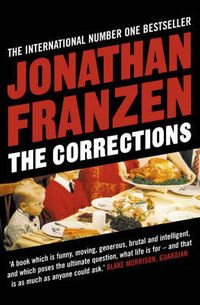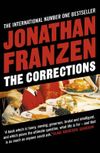I’ve always seen The Corrections as a brother of Infinite Jest. Both are obtuse, cerebral, densely detailed, and were both the Bible to hipsters who had never read either. They are both black comedies but distinctively not black comedies- at least in a world of black comedies a la Bret Easton Ellis, where having shallow, boring, stupid and violent characters with few real motives other than something vaguely related to society equates to satirical masterpiece. The back cover of my copy of this book, I believe, dubs it “tame satire.” Both are books by, well, unlikeable and snobby authors, despite just how good the books they write are. Notably, both are excellent with character arcs. I’ve often considered Don Gately to be one of the greatest characters in fiction, a deeply nuanced and incredibly well-written character. Likewise, upon finishing this novel, I can’t help but feel that all five core members of the Lambert family are up there, too. Each deeply flawed and yet lovable despite being entirely human and unlovable. Alfred is racist (in that old-man sort of way), overly traditional, and a controlling wreck. But he is driven by fear, ignorance, and a declining mental state. His views are not to be sympathized with, but they can be understood. Gary is too afraid to ever talk about or accept his own depression because he thinks people will blame his misfortunes and shortcomings on it. He feels this way because this is exactly what he does to Alfred. Enid is emotionally manipulative but ultimately as a byproduct of constantly having to care for her husband who is seen as broken. She feels complete isolation from the very Thomas Kinkade painting she wanted to be a part of. Chip begins the book as a college professor, who, while, sure, is immature, loses any of the maturity he starts the book with after his break up with his own student. Chip, after his defrauding scheme, feels near regressed to a child. Denise has multiple affairs and sees nothing wrong with it. Chip has an affair and sees nothing wrong with it. Gary thinks about having an affair but ultimately doesn’t, not because he sees something wrong with having an affair, rather because he knows that having an affair isn’t going to make him feel better. Admittedly, the defrauding scheme stuff and the Lithuanian government storyline is this book’s equivalent of the ONAN and Québécois Separatism stuff from Infinite Jest- which is to say, it’s kind of a chore to read and easily the worst part of the book. Ultimately, though, it’s a great book, and while, yes, definitely not a casual light read, it’s a lifechanging and worthwhile experience for any particularly analytical readers of literary fiction.






Comments